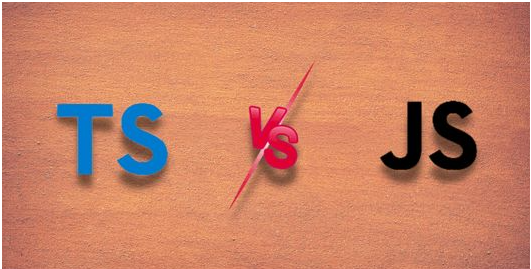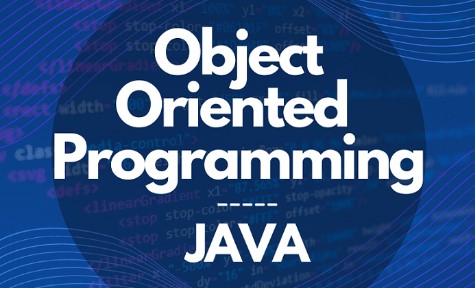
TypeScript Vs JavaScript: Which is Best in 2025?
Mar 19, 2025 3 Min Read 3870 Views
(Last Updated)
If you’re a developer or an aspiring developer who wants to build his/her career in the same field – JavaScript is one such language that can help you in becoming one and can also earn well. It is the most popular and in-demand programming language in the IT world. JavaScript was on its verge when the developer who created it, created another scripting language – TypeScript. TypeScript Vs. JavaScript has been a hot topic in the IT industry.
Since the time TypeScript came into existence, there has been a battle of TypeScript vs JavaScript – Which is Best? In this blog, we’ll discuss some of the major differences you should know before starting to work on a project.
Both JavaScript and TypeScript is the hot topic in the IT industry. Let’s see who is better than the other.
Table of contents
- What is TypeScript?
- Features of TypeScript:
- What is JavaScript?
- Features of JavaScript:
- Major Differences Between TypeScript vs JavaScript
- Conclusion
- Related Resources
- Q1. TypeScript vs JavaScript - Which is more popular?
- Q2. Is TypeScript in high demand?
- Q3. JavaScript vs TypeScript - Whose salary is better?
What is TypeScript?
TypeScript, developed by Microsoft in 2012, was developed so as to handle large-scale applications. It is a superset of typed JavaScript, you can also say it is JavaScript with more features. It means if you compile a program in JavaScript and save it as a .ts extension instead of .js (for JavaScript), it’ll work well. It is an object-oriented programming language and is strongly typed which makes it suitable for large projects since it debugs better. Some of the top companies which use TypeScript are Microsoft, Accenture, and Slack.
JavaScript + Extra Features = TypeScript
Features of TypeScript:
- Static typing and annotations
- Easy to debug
- Supports ES6 (ECMAScript)
- full-fledged IDE support
- TS code can be converted into plain JavaScript code
- Allows better development time tool support
- Compatible with any browser
- Enhances productivity
If you’re looking for career in web development, consider learning full-stack web development essentials like front-end frameworks, back-end technologies, and database management. You can join GUVI’s Full Stack Development Career Program with Placement Assistance. Though this program, you will be able to master the MERN stack (MongoDB, Express.js, React, Node.js) and build real-life projects.
What is JavaScript?
JavaScript, developed by Netscape in collaboration with Sun Microsystems, is one of the most popular and in-demand programming languages. JavaScript plays a very important role in building interactive and dynamic web applications. It is used to build small-scale projects and the syntax is similar to Java. Also, JavaScript can be used to work on both front-end and back-end development. Some big companies that use JavaScript are Microsoft, Netflix, Google, PayPal, and Uber.
Features of JavaScript:
- Cross-platform, flexible, and dynamic
- Used for both client-side and server-side implementation
- Supported by all browsers
- Adds support for classes, interface, and module
- Extendable and versatile (builds mobile, desktop, and web apps)
- Lightweight and interpreted, helps to create fast and responsive web apps
- Large community of developers
Major Differences Between TypeScript vs JavaScript
| TypeScript (TS) | JavaScript (JS) |
| typed superset of JavaScript | the dynamic language that doesn’t support types |
| TS code must be compiled | JS code is interpreted at runtime |
| TS supports classes, interfaces, and modules | JavaScript does not |
| Has a feature of prototyping | doesn’t have the feature of prototyping |
| Errors are detected at run time | Errors are detected at the early stage of development |
| Supports data binding | Does not support data binding |
| Used to build large-scale applications | Used to build small-scale applications |
| Does not have a huge community of developers | Has a huge community of developers |
| Annotate codes constantly | Annotation is not required |
| Offers NPM packages | Allows developers to explore and create codes without a specific buildup |
| front-end oriented with rich IDE support | Used to build web applications |
Conclusion
In this blog, we’ve discussed some of the major differences between TypeScript and JavaScript. TypeScript vs JavaScript has always been a major confusion among developers as to which one to choose for projects. Both have their own advantages and disadvantages which you’ve to take care of while building applications. Choosing a programming language depends on the requirements of the project. As a developer, you’ll read all the major differences between TypeScript and JavaScript so as to choose the best.
Kickstart your Full Stack Development journey by enrolling in GUVI’s certified Full Stack Development Career Program with Placement Assistance where you will master the MERN stack (MongoDB, Express.js, React, Node.js) and build interesting real-life projects. This program is crafted by our team of experts to help you upskill and assist you in placements.
Related Resources
Ans1. JavaScript, being the most popular programming language offers various resources and a huge community of developers whereas TypeScript extends JavaScript and improves the developer’s experience. Both have their advantages and can be used for specific purposes/projects. For small-scale projects, it’s better to go for JavaScript whereas using TypeScript you can build large-scale projects.
Ans2. TypeScript is a superset of typed JavaScript that can help developers to build large-scale projects. Collectively TypeScript (an in-demand programming language) and JavaScript account for a total of 31% of the job offers that require a programming language. This means out of 3 jobs 1 requires knowledge in JavaScript or TypeScript.
Ans3. According to AmbitionBox, the average salary of a JavaScript developer in India is 7LPA whereas TypeScript developers earn an average pay of around 4LPA.































Did you enjoy this article?